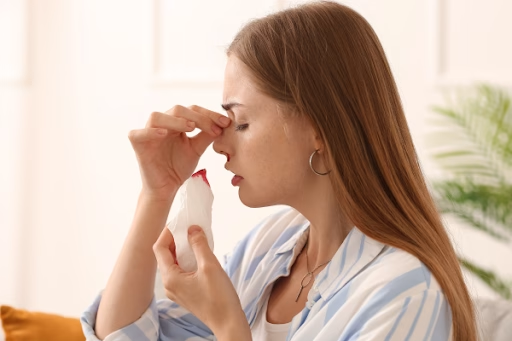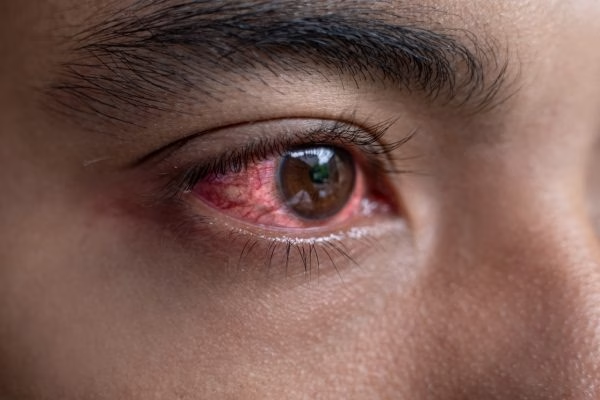Mononucleosis—commonly known as “mono” or the “kissing disease”—is a viral infection caused by the Epstein-Barr virus (EBV). It spreads through saliva and can fatigue you for weeks or even months. If you’ve been experiencing extreme tiredness, a sore throat, swollen lymph nodes, or fever, it’s essential to get tested. In this blog, we’ll walk you through the step-by-step process for diagnosing mono so you know what to expect when you visit AFC Urgent Care Massachusetts.
Step 1: Evaluating Your Symptoms
Mono shares symptoms with other illnesses, like the flu or strep throat, making it tricky to diagnose based on symptoms alone. When you visit an urgent care center, the healthcare provider will begin by reviewing your symptoms. Common signs of mono include:
- Extreme fatigue
- Sore throat (that doesn’t improve with antibiotics)
- Fever
- Swollen lymph nodes (especially in the neck and armpits)
- Swollen tonsils or white patches on the tonsils
- Headache and body aches
- Loss of appetite
- In some cases, an enlarged spleen
Getting tested is a good idea if you’ve been experiencing these symptoms for over a few days, especially if swollen lymph nodes or tonsils accompany them.
Step 2: Physical Examination
Once you describe your symptoms, the healthcare provider will perform a physical exam to check for tell-tale signs of mono. During the exam, they will:
- Check your lymph nodes: Swollen lymph nodes in the neck, armpits, and groin are common indicators of mono.
- Examine your throat: They will check for swollen or inflamed tonsils and any white patches that may have developed.
- Palpate your abdomen: The doctor may gently press on your abdomen to feel for an enlarged spleen or liver, which can occur in severe cases of mono.
Step 3: Rapid Strep Test (Optional)
Because mono shares many symptoms with strep throat, your provider may perform a rapid strep test to rule out bacterial infection. This test involves a quick swab of the back of your throat. If the strep test returns negative, your healthcare provider may proceed with additional testing for mono.
Step 4: Blood Tests for Mononucleosis
Blood tests are the most reliable way to diagnose mono. There are two primary types of blood tests used:
1. Monospot Test:
- This rapid test detects antibodies your immune system produces in response to the Epstein-Barr virus. Results are typically available within minutes.
- However, the Monospot test isn’t always 100% accurate during the early stages of infection, so additional testing may be required.
2. Complete Blood Count (CBC) and EBV Antibody Test:
- A CBC test helps check for elevated white blood cells, often in mono people.
- An EBV antibody test can detect specific antibodies to confirm whether you have a current or past infection.
Step 5: Results and Next Steps
Once the test results are available, your healthcare provider will discuss them with you. If you test positive for mono, you’ll receive guidance on managing your symptoms since there’s no specific treatment or antiviral for mono. The virus typically resolves independently, but recovery can take several weeks.
- Rest is Key: Rest as much as possible to help your body fight the infection.
- Stay Hydrated: Drink plenty of fluids to stay hydrated.
- Pain Relief: Over-the-counter medications like acetaminophen or ibuprofen can help reduce fever and relieve sore throat pain.
- Avoid Physical Activity: If your spleen is enlarged, avoid strenuous activities and contact sports to prevent injury.
When to Visit AFC Urgent Care Massachusetts
AFC Urgent Care Massachusetts offers walk-in testing and care if you suspect you have mono or need confirmation through a reliable test. Our healthcare professionals are equipped to diagnose mono through thorough examinations and blood tests, ensuring you get the answers you need without waiting for an appointment.
Knowing how mono is diagnosed can help you feel more prepared if you suspect you have the infection. From symptom review to blood tests, AFC Urgent Care Massachusetts provides quick, accurate mono testing and expert care to guide you through recovery. Walk in today at any of our Massachusetts locations for prompt testing and personalized treatment advice.


